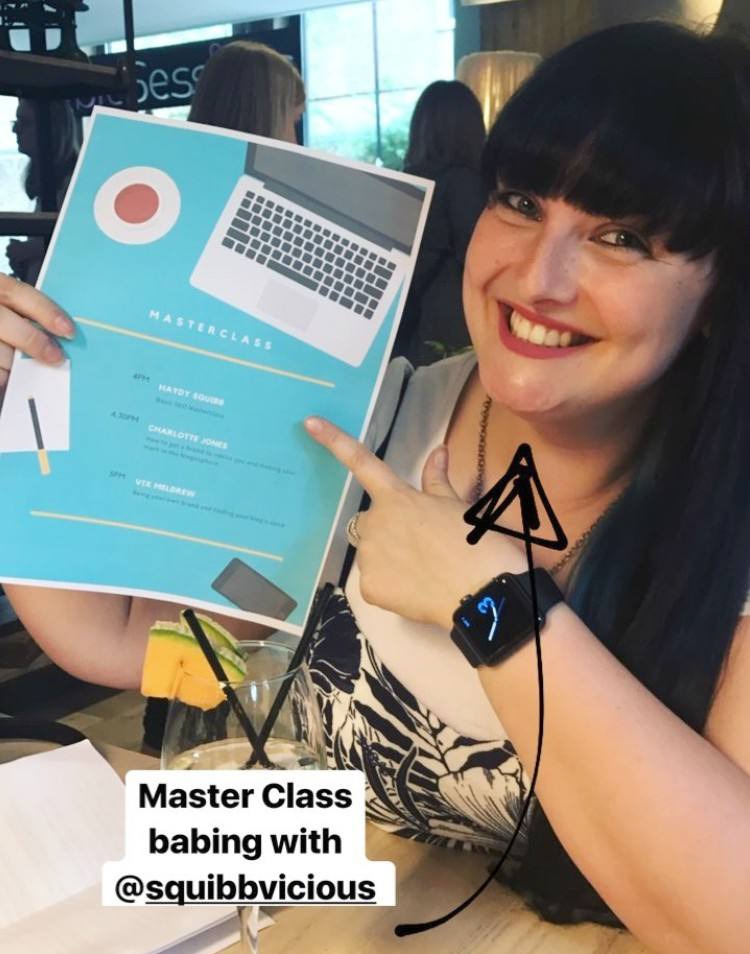On Saturday I gave a little talk at #BloggersSuite on the basics all blogger should know about SEO. I did this in a question and answer format as I put into various blogging groups and out on my twitter the question – ‘An SEO Basics Masterclass – What would you want to know?’ and I took all of the questions I received and answered those!
Here are those questions and my answers for you – sorry it’s a long one!

What is the most common misconception in SEO?
A lot of people think SEO is tough work and it really isn’t. It’s more about knowing your stuff and making it work for you. If you want to rank for keywords and be on the first page of Google then it will take work, but after all, you get out what you put in.
How long does it take for SEO to start to work?
It takes 4 to 6 months to start seeing results, but bear in mind this is when you start seeing results, and SEO results grow over time. Whatever results you’re getting at 6 months should be considerably less than what you’re getting at 12 months.
How often it changes/needs to be tweaked?
It’s recommended you revisit your keyword strategy on a quarterly basis – so once every three months. If you have heard of a new Google Algorithm update and you think you might be in danger of losing ranking due to not following Google’s guidelines then check immediately!
How do I know when it’s working?
There are two main things that you should use to make sure your SEO is working and these are your Keyword Rankings and Traffic;
If there are some fluctuations in the first three months in your keyword rankings, that’s a good thing. It generally means your SEO efforts are starting to take effect. The goal is that at the 6th month, you’re at the first page of the search results for your target keywords.
A direct consequence of your keyword rankings is your traffic. Gaining traction on keywords with high competition should mean an additional inflow of traffic.
How can I be ahead of my competitors?
SEO is a field that’s constantly changing. If you’re able to jump on a new technique or growing trend before your competitors, you may be able to cement your lead in the natural search results.
While it’s important to monitor your own website’s backlink profiles to prevent negative SEO attacks, you should also keep a close eye on any changes in the links your competitors are building.
What are the things I should look out for?
Here’s a quick list of the top things in SEO that you should be considering and doing well:
Title tagging, meta descriptions, easy to read URLs, headers, the headlines in the copy, the H1 and H2 tags, navigation, optimised images and unique copy.
What are titles, meta descriptions and tagging and all those things you just listed?!
Title tags define the title of a page or a document and are the blue text you see in the search results. They are used in search engine results to display a preview title for a given page.
Meta descriptions are HTML attributes that provide concise explanations of the contents of a web page. They are also used in search engine results to display a preview of a page. While they don’t impact search ranking directly, they play a role in providing an explanation of your web page to a prospective visitor.
Easy to read URLs are easy to do – just make sure if a protentional visitor read them, could they get a sense of what your page was about.
Header tags are an important on-page SEO factor because they’re used to communicate to the search engines what your website is about. Search engines recognise the copy in your header tags as more important than the rest (make these keyword rich). This starts with your h1 and works its way down in importance to the h2, h3 and so on.
Make you navigation clear and intuitive – you want people to be able to navigate around your site easily.
The alt tag is what search engines ‘see’ when you upload an image. It’s also used for site readers for the visually impaired. Ensuring your alt tags are descriptive makes your site more accessible and better for search engines.
If your copy on every page isn’t unique get to work on changing this immediately. Google hates duplicate text and can penalise you for this. If you are guest posting on other sites then make sure you don’t use copy already on your own site.
How do I find the best SEO experts in London?
By seeing how well they rank of Google for their own search terms! But if you are looking for an SEO agency Essex then go for One Base Media.
What are the Do’s and Don’ts of follow links?
A natural link profile means a good mix of “dofollow” and “nofollow” links. Mixing them gives more value to your website.
Nofollow is an HTML attribute value used to instruct search engines bots that a hyperlink should not influence the link target’s ranking in the search engine’s index. Dofollow links allow all search engines to follow them and reach the linked website, giving them link juice and a backlink.
For some time now, brands have been incentivising bloggers to add unmarked paid for follow links – which is against Google and ASA guidelines.
If someone wants to offer you money to place a ‘guest’ post on your blog/site; Clearly label the article as ‘sponsored’ or ‘advertorial’ and add a no-follow attribute to any links to avoid passing Page Rank.
How to tell if you need to work on your SEO?
Go onto Google, search a term that you think you should appear on the homepage for, if you’re not on the homepage then you need to put in some work!
How do I use Keywords?
Start simple. All you need is a common word or short phrase relevant to your blog or a certain article on your blog. Using Wordtracker’s Keywords tool, you can find thousands of keywords that all contain the words or phrase you have chosen. Here you can see how popular your chosen keywords are by how many times it has been searched for – or in SEO terms ‘Search Volume’. The competition number gives us an idea of how many web pages already exist that have been optimised for each keyword. A high number is bad, as it means lots of websites will be competing with you – you want to look for relevant keywords with little competition but with a higher search volume.
From this list pick a few keywords – then work them naturally into your copy, header tags and meta description.
How can you use SEO to get your DA up?
As Moz explains, to improve your DA, you need to improve your overall SEO, and that includes all the details that SEOs know and love — site structure, navigability, breadcrumbs, URL structure, meta tags, header tags, word count, keywords, alt tags, etc. SEO and content marketing require one another.
You must have lots and lots of linkable content that other bloggers and brands would want to link to.
Internal linking weaves a powerful network within your site that benefits both the user and the search engines that crawl and index your site.
You’ve got to remove poor backlinks (if you have any). Every now and then, you should dig into your link profile, find the spam links, and get rid of them.
What is the best practice in terms of anchor text/links and why linking to a page with your chosen keyword is a bad thing?
Anchor text is the visible characters and words that hyperlinks display when linking to another document or location on the web. Anchor text is “exact match” if it includes a keyword that mirrors the page that is being linked to. For example: ‘link building’ linking to a page about link building.
SEO-friendly anchor text is short, relevant to the linked-to page, low keyword density (not overly keyword-heavy) and not generic.
If too many of a site’s inbound links contain the exact same anchor text, it can start to appear suspicious and may be a sign that the links weren’t acquired naturally. In general, it’s still a best practice to obtain and use keyword- and topic-specific anchor text when possible.
Do not use the site or the name of the company by their own. Do not use the word “website” or “link” as anchor text. Avoid URLs as a link anchor.
How do you do SEO if you don’t have WordPress or plug ins?
If you use the keyword methods I’ve explained and edit your headers, meta tagging then you are doing SEO without a plug in! I have an SEO plug in but don’t use it!
How to be good at it?
Take onboard all of the things I’ve listed to look out for and act upon it!


[…] was filled with travel, change and friends! Early in the month I gave a talk on SEO, ate at The Station Pantry, Suttons Arms and Stagolee’s, I left my job at Cheapflights and […]